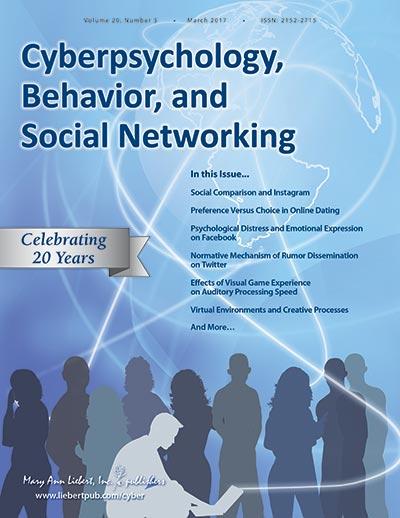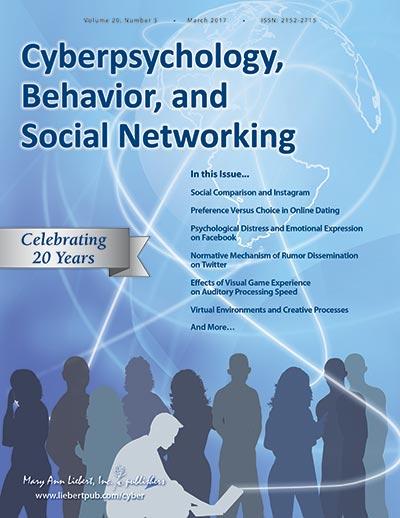
Credit: Mary Ann Liebert, Inc., publishers
New Rochelle, NY, Aug. 22, 2017 — A new study looked at self-presentation of potentially damaging content on social media and examined whether this risky behavior is more likely associated with impulsivity and spontaneity or deliberate self-monitoring. The study results and differences found between British and Italian young adults are reported in Cyberpsychology, Behavior, and Social Networking, a peer-reviewed journal from Mary Ann Liebert, Inc., publishers. The article is available free on the Cyberpsychology, Behavior, and Social Networking website.
In the article entitled "A Cross-Cultural Study of Risky Online Self-Presentation," coauthors Claire White, Clara Cutello, Michaela Gummerum, and Yaniv Hanoch, from University of Plymouth, U.K., investigated psychological factors that might influence how risky online activity. The researchers expected the results to show that both impulsive young adults and those described as "self-monitoring" or deliberate, who might want to represent themselves online to fit in with perceived social norms, would be likely to post content with potentially negative consequences, for example, related to their alcohol or drug use.
"As we spend more of our life in digital relationships, it appears that cyberculture may actually supercede geographically defined culture or nationality," says Editor-in-Chief Brenda K. Wiederhold, PhD, MBA, BCB, BCN, Interactive Media Institute, San Diego, California and Virtual Reality Medical Institute, Brussels, Belgium.
###
About the Journal
Cyberpsychology, Behavior, and Social Networking is an authoritative peer-reviewed journal published monthly online with Open Access options and in print that explores the psychological and social issues surrounding the Internet and interactive technologies. Complete tables of contents and a sample issue may be viewed on the Cyberpsychology, Behavior, and Social Networking website.
About the Publisher
Mary Ann Liebert, Inc., publishers is a privately held, fully integrated media company known for establishing authoritative peer-reviewed journals in many promising areas of science and biomedical research, including Games for Health Journal, Telemedicine and e-Health, and Journal of Child and Adolescent Psychopharmacology. Its biotechnology trade magazine, GEN (Genetic Engineering & Biotechnology News), was the first in its field and is today the industry's most widely read publication worldwide. A complete list of the firm's 80 journals, books, and newsmagazines is available on the Mary Ann Liebert, Inc., publishers website.
Mary Ann Liebert, Inc. 140 Huguenot St., New Rochelle, NY 10801-5215 http://www.liebertpub.com Phone: 914-740-2100 (800) M-LIEBERT Fax: 914-740-2101
Media Contact
Kathryn Ryan
[email protected]b.com
914-740-2250
@LiebertPub
http://www.liebertpub.com
Original Source
http://www.liebertpub.com/global/pressrelease/why-do-young-adults-post-harmful-personal-content-on-social-media/2235/ http://dx.doi.org/10.1089/cyber.2016.0660





